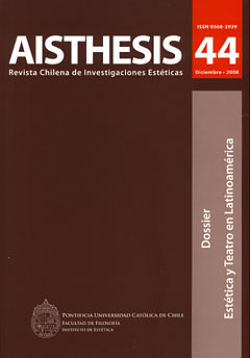From Ritual to Theatre Stage in a Pre-Hispanic Indigenous Drama: Rabinal Achí or Danza del Tun
Main Article Content
Abstract
The Rabinal Achí or Dance of the Tun is a founding theatrical play of Latin-American theatre and key for the development process of western theatre during the 20th century; it encodes the moment in which rite and theatre were mutually contained, i.e., in that the spectacle was done for the eyes of God and man. The stage design at the time, blurred the limits between the space destined for the spectator and for the actor; flower and song, i.e., the artistic expression, it was extended in time and space invading all the social spheres; the community underwent the experience of reconnecting with divinity, re-establishing the cyclical cosmic balance; the spectacle operated as a catalyst of a spiritual experience and the actor, as its facilitator.
Downloads
Article Details

This work is licensed under a Creative Commons Attribution-NonCommercial-ShareAlike 4.0 International License.
All contents of this electronic edition are distributed under the Creative Commons license of "Attribución-shareAlike 4.0 Internacional" (CC-BY-SA). Any total or partial reproduction of the material must mention its origin.
The rights of academic works published in this publication belong to their authors., who grant to AISTHESIS: Revista Chilena de Investigaciones Estéticas the license for its use. The management of the permits and the authorization of the publication of the images (or of any material) that contains copyright and its consequent rights of reproduction in this publication is the sole responsibility of the authors of the articles
